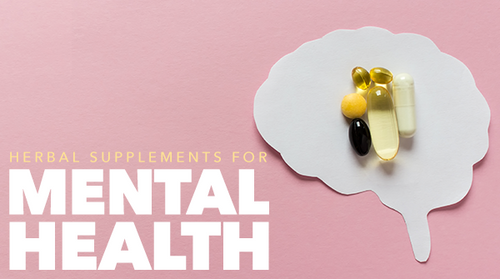One way to help maintain focus, concentration, memory and general brainpower as you age is to pay attention to your diet.
Here are seven foods you should feature when planning your menus.
Berries
Love the deep, rich blue in blueberries? So does your brain.
“Blueberries and other deeply colored berries deliver anthocyanins, a group of plant compounds with antioxidant effects,” says nutrition consultant Kerri-Ann Jennings, RD. “Some of the antioxidants in blueberries have been found to accumulate in the brain and help improve communication between brain cells.”†The information provided is not an endorsement of any product, and is intended for educational purposes only. NaturesPlus does not provide medical advice and does not offer diagnosis of any conditions. Current research on this topic is not conclusive and further research may be needed in order to prove the benefits described. The conditions and symptoms described may be indicative of serious health problems, and therefore should be brought to the attention of a qualified healthcare practitioner.
Evidence also suggests that the compounds in berries help the brain maintain plasticity, or the ability to change and adapt. This makes it easier to the brain to learn and retain new information.†The information provided is not an endorsement of any product, and is intended for educational purposes only. NaturesPlus does not provide medical advice and does not offer diagnosis of any conditions. Current research on this topic is not conclusive and further research may be needed in order to prove the benefits described. The conditions and symptoms described may be indicative of serious health problems, and therefore should be brought to the attention of a qualified healthcare practitioner.
In addition to blueberries, you should include blackberries, raspberries and strawberries in your diet.
Broccoli
Mom always told you to eat your broccoli...and she knew what she was talking about.
Broccoli provides compounds called glucosinolates, which the body uses to create powerful antioxidants. It also is very high in vitamin K, which is Jennings says is “essential for forming sphingolipids, a type of fat that’s densely packed into brain cells.”†The information provided is not an endorsement of any product, and is intended for educational purposes only. NaturesPlus does not provide medical advice and does not offer diagnosis of any conditions. Current research on this topic is not conclusive and further research may be needed in order to prove the benefits described. The conditions and symptoms described may be indicative of serious health problems, and therefore should be brought to the attention of a qualified healthcare practitioner.
Broccoli is part of a big, healthy family that includes brussels sprouts, cabbage, cauliflower and kale.
Coffee & Tea
Enjoy that first cup of coffee in the morning? You’ll be glad to know that you’re doing your brain a favor.
The caffeine in coffee is well known for helping the brain stay alert; Jennings says it also may boost serotonin and other “feel good” brain chemicals. What’s more, according to Jennings, “One study found that when participants drank one large coffee in the morning or smaller amounts throughout the day, they were more effective at tasks that required concentration.”†The information provided is not an endorsement of any product, and is intended for educational purposes only. NaturesPlus does not provide medical advice and does not offer diagnosis of any conditions. Current research on this topic is not conclusive and further research may be needed in order to prove the benefits described. The conditions and symptoms described may be indicative of serious health problems, and therefore should be brought to the attention of a qualified healthcare practitioner.
Is green tea more your thing? The news is still good.
In addition to caffeine, tea contains L-theanine, a substance associated with relaxed focus, as well as healthful polyphenols and antioxidants.†The information provided is not an endorsement of any product, and is intended for educational purposes only. NaturesPlus does not provide medical advice and does not offer diagnosis of any conditions. Current research on this topic is not conclusive and further research may be needed in order to prove the benefits described. The conditions and symptoms described may be indicative of serious health problems, and therefore should be brought to the attention of a qualified healthcare practitioner.
Dark Chocolate
Chocoholics, rejoice: Caffeine is found in dark chocolate (the darker, the better). What gives dark chocolate its flavor, and its benefits, is cocoa, which is packed with beneficial compounds called flavonoids.
“In one study including over 900 people, those who ate chocolate more frequently performed better in a series of mental tasks,” says Jennings. Chocolate may also promote a sunnier mood.†The information provided is not an endorsement of any product, and is intended for educational purposes only. NaturesPlus does not provide medical advice and does not offer diagnosis of any conditions. Current research on this topic is not conclusive and further research may be needed in order to prove the benefits described. The conditions and symptoms described may be indicative of serious health problems, and therefore should be brought to the attention of a qualified healthcare practitioner.
Eggs
Want to feel mentally sharp in the morning? You may want to make eggs a part of your breakfast.
Eggs contain vitamins B6 and B12 as well as folic acid, all of which support brain health. They also supply a B-related nutrient called choline, which your body uses to create acetylcholine, a brain chemical that helps regulate memory and mood.†The information provided is not an endorsement of any product, and is intended for educational purposes only. NaturesPlus does not provide medical advice and does not offer diagnosis of any conditions. Current research on this topic is not conclusive and further research may be needed in order to prove the benefits described. The conditions and symptoms described may be indicative of serious health problems, and therefore should be brought to the attention of a qualified healthcare practitioner.
Fatty Fish
Oily types of fish are well known as brain foods. The explanation lies in the healthy omega-3 fats these fish supply.
Omega-3s are crucial for building healthy membranes around the body’s cells, including cells in the brain called neurons. As Jennings notes, “About 60% of your brain is made of fat, and half of that fat is the omega-3 kind.”†The information provided is not an endorsement of any product, and is intended for educational purposes only. NaturesPlus does not provide medical advice and does not offer diagnosis of any conditions. Current research on this topic is not conclusive and further research may be needed in order to prove the benefits described. The conditions and symptoms described may be indicative of serious health problems, and therefore should be brought to the attention of a qualified healthcare practitioner.
While fish is healthy, some species contain potentially harmful levels of mercury. To enjoy the benefits of fish while reducing mercury exposure, trying eating species such as cod, pollack, salmon and canned light tuna twice a week.
Nuts & Seeds
Healthy fats, along with other nutrients crucial to brain health, can also be found in almonds, hazelnuts, sunflower and walnuts as well as pumpkin and sunflower seeds.
Nuts provide protein and antioxidants including vitamin E, which “shields cell membranes from free radical damage,” according to Jennings. Walnuts appear to be especially helpful for brain support.†The information provided is not an endorsement of any product, and is intended for educational purposes only. NaturesPlus does not provide medical advice and does not offer diagnosis of any conditions. Current research on this topic is not conclusive and further research may be needed in order to prove the benefits described. The conditions and symptoms described may be indicative of serious health problems, and therefore should be brought to the attention of a qualified healthcare practitioner.
Pumpkin seeds supply their own antioxidants as well as minerals such as copper, iron, magnesium and zinc, all of which are crucial to proper brain function. Sunflower seeds supply thiamine, a key brain nutrient.†The information provided is not an endorsement of any product, and is intended for educational purposes only. NaturesPlus does not provide medical advice and does not offer diagnosis of any conditions. Current research on this topic is not conclusive and further research may be needed in order to prove the benefits described. The conditions and symptoms described may be indicative of serious health problems, and therefore should be brought to the attention of a qualified healthcare practitioner.
Technically, peanuts are not nuts; they’re legumes, related to peas and beans. But they are also rich in brain-healthy nutrients, including vitamin E and a substance called resveratrol.†The information provided is not an endorsement of any product, and is intended for educational purposes only. NaturesPlus does not provide medical advice and does not offer diagnosis of any conditions. Current research on this topic is not conclusive and further research may be needed in order to prove the benefits described. The conditions and symptoms described may be indicative of serious health problems, and therefore should be brought to the attention of a qualified healthcare practitioner.
Other Brain-Healthy Foods
Looking for more ways to boost your cognition nutrition? Try adding the following to your diet:
- Avocado:A source of beneficial unsaturated fat
- Orange: Provides vitamin C, another crucial brain-support nutrient†The information provided is not an endorsement of any product, and is intended for educational purposes only. NaturesPlus does not provide medical advice and does not offer diagnosis of any conditions. Current research on this topic is not conclusive and further research may be needed in order to prove the benefits described. The conditions and symptoms described may be indicative of serious health problems, and therefore should be brought to the attention of a qualified healthcare practitioner.
- Turmeric: Best known for giving curry its yellow color, turmeric contains a brain-healthy ingredient called curcumin†The information provided is not an endorsement of any product, and is intended for educational purposes only. NaturesPlus does not provide medical advice and does not offer diagnosis of any conditions. Current research on this topic is not conclusive and further research may be needed in order to prove the benefits described. The conditions and symptoms described may be indicative of serious health problems, and therefore should be brought to the attention of a qualified healthcare practitioner.
- Whole grains: Supplies vitamin E and trace minerals; includes brown rice, barley, oatmeal and whole-grain bread and pasta
†The information provided is not an endorsement of any product, and is intended for educational purposes only. NaturesPlus does not provide medical advice and does not offer diagnosis of any conditions. Current research on this topic is not conclusive and further research may be needed in order to prove the benefits described. The conditions and symptoms described may be indicative of serious health problems, and therefore should be brought to the attention of a qualified healthcare practitioner.The information provided is not an endorsement of any product, and is intended for educational purposes only. NaturesPlus does not provide medical advice and does not offer diagnosis of any conditions. Current research on this topic is not conclusive and further research may be needed in order to prove the benefits described.
The conditions and symptoms described may be indicative of serious health problems, and therefore should be brought to the attention of a qualified healthcare practitioner.
Like this article? You’ll love our weekly newsletter
sign up here!
**These statements have not been evaluated by the Food and Drug Administration. This product is not intended to diagnose, treat, cure or prevent any disease.













































































